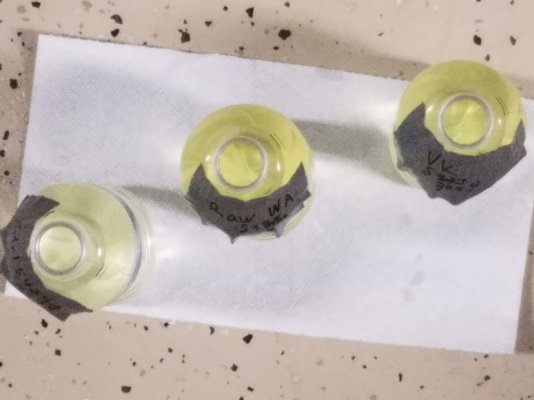What is accumulated and what is depleted in a reef tank after long (months) period of no water change?
My DT (about 110 g) is rather standard: I have a Chaeto refuge, bio pellets, and GFO reactors, a skimmer (and until recently a UV sterilizer) and I do not do any water changes. My corals mostly LPS seem to look good. Aiptasia doing very well. Fish are heavily fed and are healthy including a Bengai cardinal pair that spawns every 45 days
Is there any data on specific organic or non-organic compounds? I am not referring to any of the elements we can supplement.
I dose two-part, trace elements , K and Iodine (TLF), Fe (Seachem) as well as sponge power (KZ, hoping it supplements silica to sustain sponge growth)
My DT (about 110 g) is rather standard: I have a Chaeto refuge, bio pellets, and GFO reactors, a skimmer (and until recently a UV sterilizer) and I do not do any water changes. My corals mostly LPS seem to look good. Aiptasia doing very well. Fish are heavily fed and are healthy including a Bengai cardinal pair that spawns every 45 days
Is there any data on specific organic or non-organic compounds? I am not referring to any of the elements we can supplement.
I dose two-part, trace elements , K and Iodine (TLF), Fe (Seachem) as well as sponge power (KZ, hoping it supplements silica to sustain sponge growth)



















